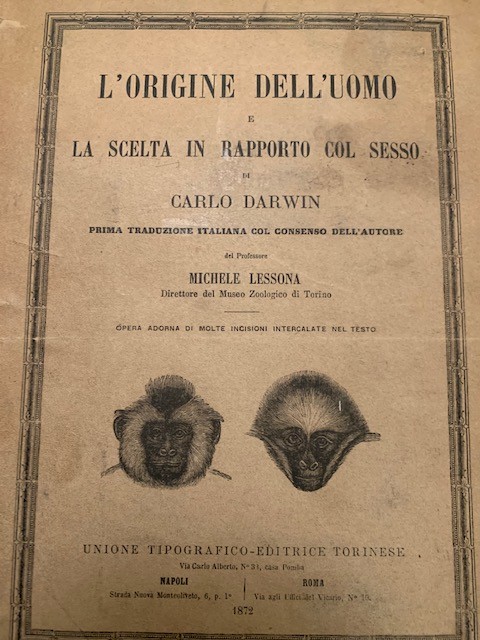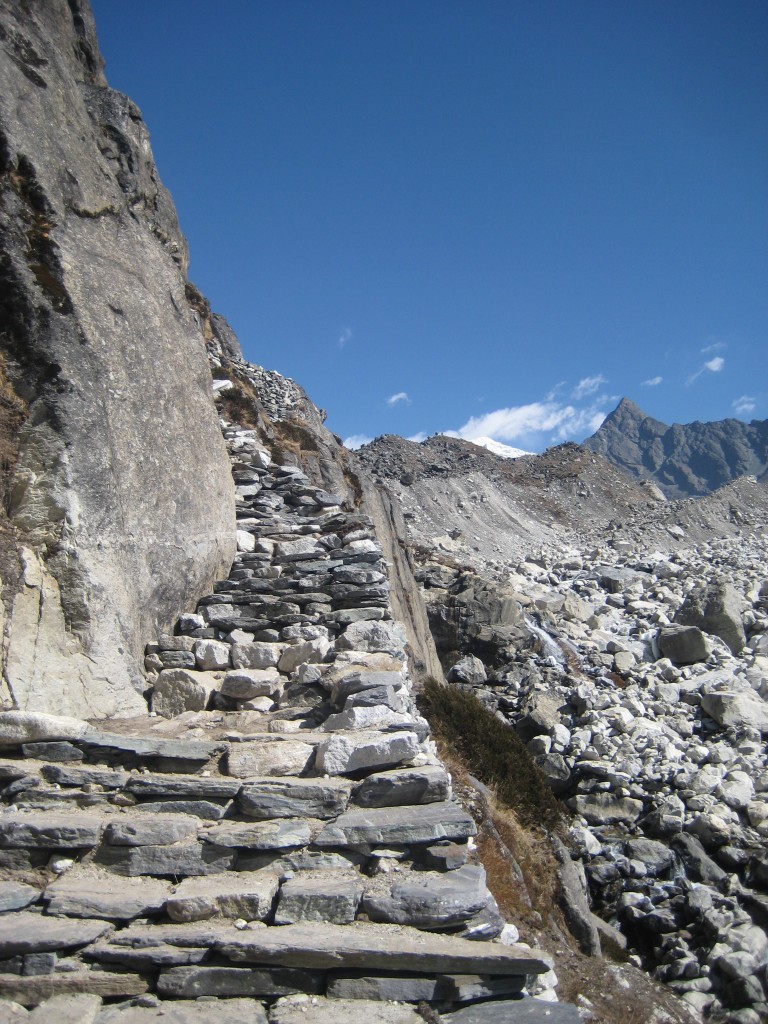Tag Archive for 'scienza'
Science: when this coronavirus nightmare will be behind us, let’s remember the essential role of science to solve the problem. And let us not forget to eliminate from any public debate all those charlatans who have confused public opinion and poisoned the social climate. Let us also reduce to silence the people who play a public function and who have given space to these charlatans, discrediting the work of the scientific community.
Some ideas published, to confirm that in these days the awareness about the science role is increased:
In Italy, “over the days, scientific awareness has also grown, in the map indicated with the term “modernity”, where it is understood that the modernity of science allows to better govern phenomena. This space has constantly grown and has allowed to lower the anxious part, even if it has maintained the feeling of fear. That is, the greater awareness has taken away indistinction from the epidemic, but has confirmed its dangerousness”.
Others can be found reading the HuffingtonPost
On the day of the birth of Charles Robert Darwin (Shrewsbury, February 12, 1809 – London, April 19, 1882) I took up my copy of “The Descent of Man” in its first Italian translation in 1872 by Michele Lessona and read some paragraphs that it is always necessary remember, to reflect on the importance of science and the rational thinking.
“The nature of the following work will be best understood by a brief account of how it came to be written. During many years I collected notes on the origin or descent of man, without any intention of publishing on the subject, but rather with the determination not to publish, as I thought that I should thus only add to the prejudices against my views. It seemed to me sufficient to indicate, in the first edition of my Origin of Species, that by this work light would be thrown on the origin of man and his history; and this implies that man must be included with other organic beings in any general conclusion respecting his manner of appearance on this earth. Now the case wears a wholly different aspect. When a naturalist like Carl Vogt ventures to say in his address as President of the National Institution of Geneva (1869): Personne, en Europe au moins, n’ose plus soutenir la cration indépendante et de toutes pièces, des espèces, it is manifest that at least a large number of naturalists must admit that species are the modified descendants of other species; and this especially holds good with the younger and rising naturalists. The greater number accept the agency of natural selection; though some urge, whether with justice the future must decide, that I have greatly overrated its importance.”
New sport season, new challenges
For all: let’s read more, let’s read much more, don’t settle for what we know
Stay incredulous of what little we know
Don’t think we’ve studied already too much
Let’s be amazed with the new concepts and data coming from science
How many of those who say that sports psychology is not founded on scientific grounds and continue to use only their psychological common sense or what they consider valid for themselves to train athletes.
How many managers, coaches, athletes and parents choose a mental training program provided by a motivator or a mental coach who does not have a degree in psychology because what matters is “making the athletes get the balls out” motivating them with barracks sentences.
Those who think that the psychologist is for the weak, it is for those who need a pat on the back and someone to complain about.
I want to let everyone know that there are 12 international scientific journals in the world publishing every year the results of research conducted in this field of psychology in all the universities of the world, providing a huge contribution to the knowledge and development of mental training systems and athletes development.
Remember that you can’t say I didn’t know.
Today an interesting article by Carlo Rovelli published on laRepubblica talks about the scientific creativity. He says that comes from the total immersion in the current knowledge. “To get it intensely, to live immersed in it.” Being into the problems until you find the door that nobody noticed until that moment, and open a door toward a new knowledge. In other words, new ideas come only to those who have worked very hard. It’s the claim that the Nobel prize Subrahhmanyan Chandrasekhar expresses to Rovelli during a dinner: “To do good physics is not necessary to be particularly intelligent. What it needs it’s a lot of work.”
It’s strange, says Carlo Rovelli in another article- but perhaps the most beautiful description of how science works, and its a long time, has given Plato, in his “seventh” letter, sent to Dione family in Syracuse, when he describes the activity of the true “seeker of truth”: “After much effort, when names, definitions, comments and other sensitive data, are brought into contact with the bottom and compared with each other, in the course of scrutiny and a friendly but stern examination done by men who proceed by questions and answers, and no ulterior motives, at the end with a sudden flash shines, for any problem, understanding, and clarity of intelligence, the effects of which, express the extreme limits of human power.”
The same think Alain Connes, mathematician, always reported by Rovelli in his article: “You study, study, study again, then one day, studying, there is a strange feeling: « but not, it cannot be so, here there is something else again.» “From that moment, you’re a scientist.”
Each of us should reflect on these words from Plato to today are repeated with conviction, wondering if sometimes our disappointments and our results below the expectations not derive simply from not be very well prepared.
Ross Stucker and Jonathan Dugas, experts in sports science who live in Cape Town and Chicago respectively, analyze in depth the main events of athletics, cycling, tennis, Olympics and doping. We can read them in their blog The Science of Sport. They believe that science is nothing without the application and therefore their purpose is to provide analysis of performance sports where there is evidence of how scientific knowledge support and help to explain the athlete results. Of course it also talks about doping and then of how science can be used to alter performance. It’s a site that provides a lot of documented information, with the aim of bringing sports supporters the themes of science.
I leave you with a questionnaire that they have developed to highlight 2012 key events by means of questions related to sports covereb by The Sports Science: http://www.sportsscientists.com/
Pistorius, l’atleta che corre i 400m con le gambe di carbonio, è una domanda aperta al mondo dello sport. Sono felice per lui e le sue battaglie che rivoluzionano l’atletica mondiale. Su La Stampa di oggi Carlo Vittori dice cose sensate e probabilmente corrette. I muscoli delle gambe producono nello sforzo acido lattico , tendono a indurirsi e la mente deve imparare a gestire questi momenti, Sono problemi che Pistorius non avrà mai. Nel contempo è un messaggio positivo per quanti nelle sue condizioni non devono rinunciare ad avere una vita normale (questo se mi permettete la semplificazione). Quindi che fare? Gambe e carbonio non sono proprio la stessa cosa. E’ una questione di etica. Personalmente sono convinto che siamo di fronte a una questione che nessuno prima d’ora si era dovuto porre. L’ingegneria umana si svilupperà di molto come mi auguro nei prossimi anni mentre la muscolatura umana resterà per i prossimi millenni sempre la stessa. Per cui finché Pistorius lotta per il minimo olimpico va bene (partecipa, siamo democratici e non razzisti) ma quando la scienza migliorerà le protesi che fare? Quando, come dice Vittori, un braccio bionico lancerà un giavellotto a 100m, che faremo? Ai posteri l’ardua sentenza
L’Italia ad personam esiste nello sport anche in positivo. Vuole dire che determinate attività, ricerche, iniziative vengono intraprese solo perchè vi sono persone che vogliono perseguirle, perchè sono dirigenti appassionati e competenti. E’ altrettanto vero che quando si stufassero ciò che hanno fatto non esisterà più. E’ il caso, ad esempio, di Mario Gulinelli l’animatore instancabile della più prestigiosa rivista italiana di scienze dello sport, SdS – Rivista di cultura Sportiva del Coni, che svolge questo lavoro editoriale da più di 30 anni, quando si ritirerà da questo impegno non vi è nessuno che è stato preparato a ricoprire lo stesso ruolo. Un classico esempio italiano: tolta la persona, persa la funzione. Già, forse la cultura non interessa. Non è possibile fare una pianificazione di persone da affiancare perchè imparino, mica a tradurre dal tedesco, ma piuttosto la filosofia, la ricerca delle innovazioni non per forza di lingua inglese, l’originalità del pensiero? La cultura sportiva forse non deve esistere, meglio spendere dei soldi per il doping o al massimo del positivo per i laboratori antidoping.








